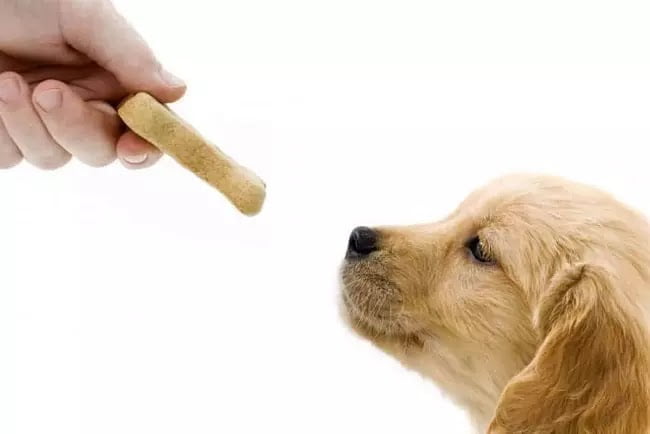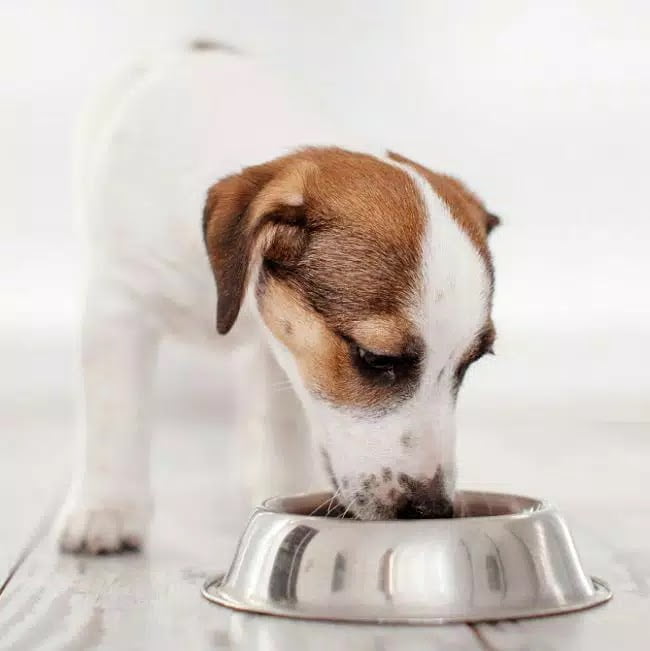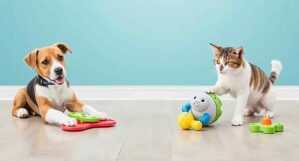The household has a great ambience with a pet bird, thanks to their unique personalities, singing and playfulness which can bring delight to any family. These bird pets are not just animals, they are our family members but also give us happiness and vitality to our life. Nevertheless, as any human relative, their health and happiness depends to a great extent on their being properly fed on, with the right kind of food and practices.
Pet bird food choice is not simply feeding the birds, but also feeding the birds with the nutrition needed to keep the birds in good condition. Optimal nutrition provides vivid plumage, strong bones and robust immune function that allows them to achieve their peak and live a healthy long life. It also provides them with immunity to infection and any disease pathology. Thus, as caring owners, we should know of their dietary requirements.
Providing sufficient nutritional demands is one of the key responsibilities that are expected from bird keepers. Very good nutrition is the absolute base of their healthy and happy, playful lifestyles. Having an idea of what to feed your pet bird allows you to provide it with the greatest care and keep it at its best physically and mentally while hopefully making it the happiest. This focus on what they eat is a sign that we care about them and their wellbeing.

Beginner’s Guide to Bird Nutrition
If you tried to do a marathon on a diet consisting only of sugary foods, you would go nowhere and your health would be very bad. The same principle applies to our avian companions. Even the food that a bird eats directly affects all of its life variables, from its bright appearance and exuberant activity, through to strong powers of immunity and resistance to the loss of its life expectancy. The aim realized by a good nutrition is a healthy, happy bird.
Healthy eating prevents disease, strengthens their immune systems to combat their infections, and enables them to sing, play, and interact with them for many years to come. Lack of careful nutritional attention to your birds may cause many undesirable health conditions, such as obesity, nutrient deficiency, feather plucking and compromised immune functionall of which may quickly lead to an early grave for the best of companions.
Common Misconceptions About Bird Food (seeds only, etc.)
One of the most prevalent and harmful stories is the one about the diet of a bird should be mainly based on a diet of seeds. While seeds might seem like a natural bird food, especially considering images of wild birds pecking at seed heads, relying solely on seeds for your pet bird is akin to feeding a child only candy appealing but nutritionally disastrous. Seed-based diets are typically (a) high in fat and low in vitamins, minerals, and amino acids, which are necessary for the healthy development of the bird.
Another myth is that “birdseed” mixes sold on the pet store are balanced diet. The contents of such mixtures are often lopsided and, consequently, selective feeding is given to the birds, the birds tend to select their favourite (and in general, the most abundant, if not maximal) seeds, thereby further exacerbating the nutritional lopsidedness. The time has arrived to put an end to the old dogma and to learn about the nutritional needs of the pet bird.
Pelleted Diets Explained
Pelleting is a process of using dry, highly formulated (leaner and drier than wet food) granular ingredients for animal nutrition, such as chicken, turkey, fish, beef, corn, and rice.
Pelleted foods are commercially prepared bird foods that are formulated to deliver whole, and balanced nutrition in each mouthful. They’re like some kind of multivitamin and complete meal all in one! In contrast to seed mixes, pellets are composed of a cocktail of various constituents, e.g., grains, seeds, fruits, vegetables, and proteins, which are homogenized and compacted into pellets. This clever design, however, ensures that selective feeding does not occur; your bird does not get to pick at the good stuff (ungus) from the bad stuff (tko), and leave the rest behind.
Peletts provide the bird with a regular adequate proportion of vitamins, minerals, proteins, carbohydrates and fats and thereby the better part of a balanced diet of a total healthy bird diet.
Selection of proper pellets for your avian species.
In the same way that food for others (dog, cat) is formulated for a different species, avian pellets are also made taking into account the nutritional requirements of a particular range of avian species. Pellets are available with different sizes and formulations for different categories, e.g., small birds (budgies, finches), medium birds (cockatiels, conures) and large birds (macaws). Do not use pellets that are not specifically designed for the species of the bird or for the size group. Verify package instructions and consider animal age as well as any unique health conditions of the animal. Reputable manufacturers will usually explicitly state which species of birds their pellets optimise for.
Transitioning your bird to pellets (if needed).
If the animal is eating at present a seed-based diet, converting them to pellets can be a trial-and-error process (i.e., waiting and trying) in patience and retries. Birds are known to be slow to come out of the bucket, and therefore, with respect to food in particular. A gradual transition is key. Start by introducing a very small amount of pellets into their usual seed mixture and gradually increase the number of pellets for a week or so in relation to the seed mixture content.
Potentially it can be attempted to “soften” the pellets more by adding a little bit of water on top of them, or mixing them with food your bird enjoys like diluted fruit juice (no sugar) or mashed sweet potato. Give pellets whenever your pet bird is hungr.”, “early morning”. Be persistent but patient, and consult with an avian veterinarian if you’re struggling or if your bird stops eating altogether during the transition.
Fruits and Vegetables for Variety and Vitamins
Good quality, fresh fruits and vegetables are valuable nutrient boosters to supplement birds’ diet and they provide the necessary vitamins, minerals, antioxidants and natural fibre that are lacking in pellets. Imagine them as the bright and vibrant salad accompaniments to their dry, main dish! A diverse array of bird-safe options includes:
Fruits: Apples (no seed), banana, berry (strawberry, blueberry, raspberry), cantaloupe, grape (in small quantity), mango, orange, papaya, peach (no seed), pear (no seed).
Vegetables: Broccoli, carrots, cooked sweet potato, cucumber, dark leafy greens (kale, spinach, romaine lettuce low), green beans, peas, peppers (bell peppers, and chili peppers, excluding seeds), squash (cooked).
Preparation and serving methods (chopped, cooked, etc. ).
Preparation is important for both safety and palatability. Make sure to wash the fruits and vegetables properly in order to remove pesticides and contamination. Remove seeds and pit from fruits, because both can be toxic in some cases (apple seeds, cherry pits, etc. Cutting fruits and veggies into small, miniaturized, bite-sized pieces convenient to the size of a pet parakeet. The of specific vegetables such as sweetness potato and squash are enhanced after these vegetables are cooked (steamed, boiled, or baked without additional oil/seasoning). Offer new foods in a single meal as well as pellets, and try different textural presentations to see what is enjoyable for your bird.
Importance of variety and rotation of fresh foods.
Nor are birds any less prone to the ‘boredom effect’ then humans are, with the same results (e.g. Variety is important in order to give them an increasingly diverse range of nutrients, as well as to provide enjoyment and stimulation in normal mealtimes. Turn the fruits and vegetables that you sell around, providing new items every week. It also has a positive impact on the preventive effects against the nutritional imbalance in the case of excess consumption of one fruit/vegetable species. Just imagine providing a “rainbow” of colors of food in their fresh meal everyday— different colours have often represent different vitamins and antioxidants.
Seeds and Nuts
Although seeds were established formerly as the main diet of birds, we now understand they should be reserved as such a rare food, not the basis of their diet. Seeds and nuts are high in fat and low in adequate amounts of vitamins and minerals. Consuming excessively of these can result in obesity, and fatty liver diseases and so on. Think of seeds and nuts as the “dessert” of the bird world delicious but best enjoyed in moderation.
Healthy seeds and nuts in moderation.
For seeds and nuts that can be used as reward, however, the healthiness of some is superior to others. Opt for un-salted and un-roasted options. Healthier seed and nut choices for treats include:
Seeds: Millet (also treated), sunflower seeds (in minute amounts, but it is very high in fat in calories), pumpkin seeds (without any added salt).
Nuts: Almonds, walnuts, pecans, Brazil nuts (less commonly, due to the high fat content).
Remember, even healthy seeds and nuts should only make up a small percentage of your bird’s overall diet no more than 10% is a good guideline.
Dangers of seed-only diets and high-fat nuts.
A diet of seeds alone is a recipe for nutritional disaster. It leads to deficiency of vitamins A, calcium, and multiple amino acid, resulting in immune weakness, bad feather quality, and severe morbidity. Even healthy in the amounts which can be eaten by man, high-fat nuts can cause birds to become fat, and possibly other bodily ailments by excessive consumption of them. Too much fat intake also can lead to liver diseases and even reduce the life span of the bird. Do not give a great deal of nut with full lipid content, for example, macadamia nuts or peanut.
Water: Always Fresh and Accessible
Water is as crucial to birds as it is to any living being. Birds have high metabolisms and can become dehydrated quickly. Clean, fresh water must be available at all times. Water is an essential component of hydration, digestion, temperature regulation, and normal body operation. Dehydration in birds is potentially lethal and leads to weakness, lethargy and organ injury.
Types of water bowls and water bottles.
You can offer water in various ways. Heavy, low ceramic bowls are excellent for stability and easy washing. Sippers on water bottles are also very common, in particular, for species with small size, since this keeps water cleaner and prevents the birds from soaking in drinking water. Experiment to see what your bird prefers. Some birds enjoy both bowls and bottles. No matter what you choose, disinfect the container of water per day by soap and hot water in order to prevent bacterial growth, and then replace the water.
Signs of dehydration and water refusal.
Be vigilant for signs of dehydration. These can include:
Lethargy and weakness: Your bird seems unusually tired and inactive.
Sunken eyes: The eyes may appear dull and sunken in.
Sticky saliva: Fluid thickness and stickiness instead of watery is possible the saliva.
Decreased urine output: You might notice less droppings or drier droppings.
Skin tenting: Gently pinch a pinch amount of skin (if applicable); if pinch amount of skin is tented instead of a snap back immediately, this may indicate dehydration.
Suspect [your] bird is dehydated, refusing water, and/or is not drinking water despite the availability of water, get expert advice immediately from an avian veterinarian. Water refusal can be a signal of disease and should be given the necessary care.
Foods to Avoid: Toxic and Unsafe Items
Certain human foods are highly toxic to birds and must always be avoided. These include:
Avocado: Contains persin, which is neurotoxic, and can cause cardiac injury and sudden death in birds.
Chocolate: Contains theobromine, a drug that acts as a central nervous system stimulant with severe consequences for birds, can cause seizures, tremor, and death.
Caffeine (coffee, tea, soda): Another one of the stimulants is toxic to birds, causing hyperactivity, seizure, and heart issues.
Alcohol: It is possible that even low doses of the drugs are toxic and lead to liver or neurological problems.
Onion and Garlic: Materials harboring agents that eliminate red cell thereby causing anemia.
Xylitol (artificial sweetener): Highly toxic and can cause liver failure and seizures.
Fruit pits and apple seeds: Contain cyanide compounds, which are toxic.
Mushrooms: Some varieties are toxic to birds.
Raw beans: Contain toxins that are neutralized by cooking.
Explain why these foods are harmful.
These foodstuffs contain substances that are not metabolized and/or processed by the birds to cause their injury and toxic effects in the birds’ internal body. They are for example the fact that persin in avocado inhibits cardiac function, theobromine caffeine overstimulate their nervous system and onion garlic substances destroy red blood cells. Birds are not able (to) cope with such materials and even moderate amounts can be toxic/lethal.
Foods high in salt, sugar, and fat to limit.
In addition to eating as little as possible of the poisonous food stuffs, limit also consumption of salty, sugary, and fatty foods. They can cause obesity, kidney disease, and development of complications with time. Avoid giving your bird:
Salty snacks: Chips, pretzels, processed crackers.
Sugary treats: Candy, cookies, sugary cereals.
Fried foods and fatty meats: Bacon, sausage, fried chicken skin.
Moderation is key even with seemingly harmless human foods. When in doubt, it’s always best to err on the side of caution and avoid offering human food unless you are absolutely certain it is safe for your bird.
Feeding Schedule and Portions
Many bird pet birds need free access to fresh pellets and water all the time. Fruit and vegetables as the ingredients of fresh food products must be provided at one or more times per day and ideally in the morning and the early afternoon. If seeds and nuts are provided as an alternative snack, this should be provided only in very low amounts, for example, for a few days in the week.
Methods for identifying suitable bird portions based on bird size and species.
Food intake varies significantly depending on the species, size, age, metabolic state, and activity level of the bird. Observe your bird’s weight and body condition. A normal bird is assumed to be active, lucent and with a well-toned chest, neither too plump nor too lean. Please follow the feeding recommendations on your pellet packaging. For fresh foods, offer a choice in small amounts (10-20% of the total amount per day). Smaller birds will naturally eat less than larger birds. Speak to your avian veterinarian for tailored portion estimates for your individual bird.
Importance of removing uneaten food.
In order to prevent spoilage and bacterial growth, discard uneaten fresh foods from the cage as soon as few hours have passed especially during hot times. Spoiled food can cause illness in birds. Furthermore, the removal of unfed pellets and seeds after 1 to 2 days helps keep the cage clean and encourages your bird to eat a new diet the next time he/she is fed.
Supplements and Vitamins
A general belief exists that all pet birds should be given regular supplementation of vitamin(s) or mineral(s). If the bird is eating a good quality pelleted article in feeding which is the main part of diet and supplemented with a good range of fresh fruits and vegetables, but supplementation is generally no longer required, and even could even be counter productive (excessive amounts of certain vitamins can be toxic) etc.
When supplements might be necessary (illness, deficiency, breeding).
There are instances in which supplementation might be helpful or even unavoidable:.
During illness or recovery: A supplement is something that a veterinarian can suggest in order to aid recovery from disease or surgery.
Nutritional deficiencies: If a single nutrient deficiency is diagnosed by a blood test, then it is often recommended to prescribe a drug to compensate to the deficiency.
Breeding birds: Bird/hens laying eggs have nutritional requirements which have increased, particularly around calcium and protein, that can be met better by specialist supplements (with veterinary advice).
Birds on seed-based diets: If you are still acclimatizing to pellets or your bird primarily eats seeds (not recommended), a doctor of the veterinary may suggest a multivitamins supplement for the purpose of covering the nutritional paucity inherent to seed diets.
Consult a veterinarian for supplement recommendations
Never supplement a bird without, with, and approval from an avian veterinarian. They may assess the specific need for these supplements and decide if supplements are needed in the first place, and prescribe the correct kind and amount. OTC supplements are not always efficacious and safe and risky to supplement improperly, when it may have adverse effects.
Creating a Balanced Diet Plan
This is an example daily diet following (modify portions to fit your bird’s species and age).
Morning: Fresh pellets available in the cage (replace daily). Place chopped fresh fruits and vegetables in a container by themselves (do not use uneaten items longer than a few hours). Fresh, clean water available at all times.
Afternoon/Evening: Pellets are still available. There is another small portion of fresh vegetable or different coloured fruit available. Remove uneaten fresh food before bedtime.
Treats (2-3 times per week): Consume some healthy seeds or nuts during training or as a snack (e.g., some sunflower seeds, or a small serving of almond). Millet sprays can also be used as occasional treats.
Weekly: Rotate the fruits and vegetables that are listed each day so as to respond to change. To keep consistency and a healthy condition, it is important to monitor the weight and droppings of your bird.
Monitoring your bird’s weight and health
Regularly monitor your bird’s weight and overall health. Periodically, your bird can be lightly weighed on a standard kitchen scale (ensure this is done safely and avoids disturbing your bird). Observe their activity level, feather condition, appetite, and droppings. Normal stools should be well formed, and have a dark solid phase (feces), a white phase (urine crystalline urine), and a clear phase (urine). Weight and stool/elimination/behavioral changes might indicate a problem that should be examined by a veterinarian.
Diet modification according to the age and activity level
A bird’s dietary needs can change throughout their life. Young, growing birds require more calories and protein. Breeding birds have increased nutritional needs. Elderly, less active birds may need less energy to avoid weight gain. Modify the diet of your avian based on the stage of life, level of activity and health condition as needed, and always follow a specialist advice of your avian’s veterinarian.
Conclusion
The health of which of your pet bird breeds offer a long and fulfilling life depends on providing them with a good diet. Remember these key points:
- Pellets should be the foundation of their diet.
- Still, however, fresh fruits and vegetables are still required for the nutrition and vitamins.
- Seeds and nuts are treats, not a staple.
- Fresh, clean water must be available at all times.
- Refraining from toxic foods, with a constraint to salt, sugar, and fat snacks.
- Monitor your avian health, and adjust diet accordingly.
This is a general guideline, of course, and the individual bird varies. For individualized dietary recommendations, therefore specific to your bird’s species, age, soundness and lifestyle contact a qualified avian veterinarian. They are by far the most effective tool to guarantee your pet bird is eating the right stuff to promote its full life. A good bird is a happy bird and a lovely bird to have around!








